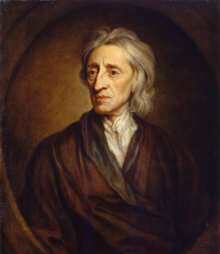Empirisme
Empirisme adalah suatu aliran dalam filsafat yang menyatakan bahwa semua pengetahuan berasal dari pengalaman manusia. Empirisme menolak anggapan bahwa manusia telah membawa fitrah pengetahuan dalam dirinya ketika dilahirkan. Empirisme lahir di Inggris dengan tiga eksponennya adalah David Hume, George Berkeley dan John Locke. Ajaran empirisme memberikan kebimbangan kepada sains dan agama pada zaman modern filsafat, sehingga dapat diasumsikan mengecilkan peranan akal. Istilah empirisme sendiri berasal dari bahasa Yunani empeirin yang berarti coba-coba atau pengalaman. Sebagai suatu doktrin, empirisme adalah lawan rasionalisme. Untuk memahami isi doktrin ini perlu dipahami lebih dahulu dua ciri pokok empirisme, yaitu mengenai teori tentang makna dan teori tentang pengetahuan. Teori makna dinyatakan sebagai teori tentang asal pengetahuan, yaitu asal-usul idea atau konsep. Sedangkan teori tentang pengetahuan menyatakan bahwa semua kebenaran adalah kebenaran a posteriori , yaitu kebenaran yang diperoleh melalui observasi.[1]

Bacaan lanjutan
- Achinstein, Peter, and Barker, Stephen F. (1969), The Legacy of Logical Positivism: Studies in the Philosophy of Science, Johns Hopkins University Press, Baltimore, MD.
- Aristotle, "On the Soul" (De Anima), W. S. Hett (trans.), pp. 1–203 in Aristotle, Volume 8, Loeb Classical Library, William Heinemann, London, UK, 1936.
- Aristotle, Posterior Analytics.
- Barone, Francesco (1986), Il neopositivismo logico, Laterza, Roma Bari.
- Berlin, Isaiah (2004), The Refutation of Phenomenalism, Isaiah Berlin Virtual Library.
- Bolender, John (1998), "Factual Phenomenalism: A Supervenience Theory"', SORITES, no. 9, pp. 16–31.
- Chisolm, R. (1948), "The Problem of Empiricism", Journal of Philosophy 45, 512–517.
- Dewey, John (1906), Studies in Logical Theory.
- Encyclopedia Britannica, "Empiricism", vol. 4, p. 480.
- Hume, D., A Treatise of Human Nature, L.A. Selby-Bigge (ed.), Oxford University Press, London, UK, 1975.
- Hume, D. "An Enquiry Concerning Human Understanding", in Enquiries Concerning the Human Understanding and Concerning the Principles of Morals, 2nd edition, L.A. Selby-Bigge (ed.), Oxford University Press, Oxford, UK, 1902.
- James, William (1911), The Meaning of Truth.
- Keeton, Morris T. (1962), "Empiricism", pp. 89–90 in Dagobert D. Runes (ed.), Dictionary of Philosophy, Littlefield, Adams, and Company, Totowa, NJ.
- Leftow, Brian (ed., 2006), Aquinas: Summa Theologiae, Questions on God, pp. vii et seq.
- Macmillan Encyclopedia of Philosophy (1969), "Development of Aristotle's Thought", vol. 1, p. 153ff.
- Macmillan Encyclopedia of Philosophy (1969), "George Berkeley", vol. 1, p. 297.
- Macmillan Encyclopedia of Philosophy (1969), "Empiricism", vol. 2, p. 503.
- Macmillan Encyclopedia of Philosophy (1969), "Mathematics, Foundations of", vol. 5, p, 188–189.
- Macmillan Encyclopedia of Philosophy (1969), "Axiomatic Method", vol. 5, p. 192ff.
- Macmillan Encyclopedia of Philosophy (1969), "Epistemological Discussion", subsections on "A Priori Knowledge" and "Axioms".
- Macmillan Encyclopedia of Philosophy (1969), "Phenomenalism", vol. 6, p. 131.
- Macmillan Encyclopedia of Philosophy (1969), "Thomas Aquinas", subsection on "Theory of Knowledge", vol. 8, pp. 106–107.
- Marconi, D (2004), "Fenomenismo"', in Gianni Vattimo and Gaetano Chiurazzi (eds.), L'Enciclopedia Garzanti di Filosofia, 3rd edition, Garzanti, Milan, Italy.
- Markie, P. (2004), "Rationalism vs. Empiricism" in Edward D. Zalta (ed.), Stanford Encyclopedia of Philosophy, Eprint.
- Maxwell, Nicholas (1998), The Comprehensibility of the Universe: A New Conception of Science, Oxford University Press, Oxford.L
- Mill, J.S., "An Examination of Sir William Rowan Hamilton's Philosophy", in A.J. Ayer and Ramond Winch (eds.), British Empirical Philosophers, Simon and Schuster, New York, NY, 1968.
- Morick, H. (1980), Challenges to Empiricism, Hackett Publishing, Indianapolis, IN.
- Peirce, C.S., "Lectures on Pragmatism", Cambridge, MA, March 26 – May 17, 1903. Reprinted in part, Collected Papers, CP 5.14–212. Reprinted with Introduction and Commentary, Patricia Ann Turisi (ed.), Pragmatism as a Principle and a Method of Right Thinking: The 1903 Harvard "Lectures on Pragmatism", State University of New York Press, Albany, NY, 1997. Reprinted, pp. 133–241, Peirce Edition Project (eds.), The Essential Peirce, Selected Philosophical Writings, Volume 2 (1893–1913), Indiana University Press, Bloomington, IN, 1998.
- Rescher, Nicholas (1985), The Heritage of Logical Positivism, University Press of America, Lanham, MD.
- Rock, Irvin (1983), The Logic of Perception, MIT Press, Cambridge, MA.
- Rock, Irvin, (1997) Indirect Perception, MIT Press, Cambridge, MA.
- Runes, D.D. (ed., 1962), Dictionary of Philosophy, Littlefield, Adams, and Company, Totowa, NJ.
- Sini, Carlo (2004), "Empirismo", in Gianni Vattimo et al. (eds.), Enciclopedia Garzanti della Filosofia.
- Solomon, Robert C., and Higgins, Kathleen M. (1996), A Short History of Philosophy, pp. 68-74.
- Sorabji, R. (1972), Aristotle on Memory.
- Thornton, Stephen (1987), Berkeley's Theory of Reality, Eprint
- Ward, Teddy (n.d.), "Empiricism", Eprint.
- Wilson, Fred (2005), "John Stuart Mill", in Edward N. Zalta (ed.), Stanford Encyclopedia of Philosophy, [http://plato.stanford.edu/entries/mill/
- randy.ambon
Pranala luar
- (Inggris) Stanford Encyclopedia of Philosophy entry on Rationalism vs. Empiricism
- (Inggris) Theory of Knowledge: An Introduction to Empiricism
- ^ Ahmad Tafsir, Akal dan Hati Sejak Thales Hingga Capra, Bandung: Remaja Rosdakarya, 2000, 175.